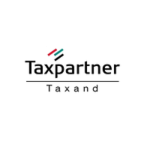Taxes can be a significant cost in a M&A transaction and are subject to a review prior to the transaction, in most cases. This review includes the tax risks acquired with the company, the taxes triggered by the transaction, and future taxes based on the acquisition structure.
In Switzerland, there are similar tax issues as in other jurisdictions, such as transfer taxes, taxes related to employee participation schemes, capital duty, related party financing and debt push down. Then, there are certain Swiss specialties such as indirect partial liquidation, taxation of earn out as salary, old reserves or extended international transposition.
According to longstanding practice, taxpayers can obtain rulings from the cantonal and federal tax authorities clarifying the tax consequences of a transaction and the intended acquisition structure prior to the transaction. Such rulings usually take four to six weeks and are free of charge for the most part. In practice, rulings concerning certain tax matters are often stipulated as conditions to closing or are even filed before signing.
Transfer taxes
In Switzerland, securities transfer tax is levied on the sale of shares if a securities dealer for stamp tax purposes is involved in the transaction as a party or as a broker. A Swiss company owning securities with a book value CHF10 million ($10.86 million) qualifies as securities dealer and has to remit transfer stamp tax of 0.15% on the sales price of a Swiss company and 0.30% on the sales price of a non-Swiss company. The transfer tax can be fully or partially shifted to the other party by contractual means. Usually, the sale and purchase agreement (SPA) contains a clause with regard to bearing of transfer tax. Often it is shared between seller and buyer.
If a Swiss investment bank is involved in the transaction, such involvement is viewed as taxable brokerage by the Swiss federal tax administration and will trigger transfer stamp tax for the bank, a registered securities dealer by law. The bank will typically shift such transfer stamp tax to its client (seller) who in return will try to shift at least half of the tax to the buyer in the SPA.
Based on recent case law, transfer stamp tax will be triggered even if neither the seller nor the buyer is a securities dealer for stamp tax purposes but if the parent company of either party which is a securities dealer is actively involved in the transaction (internal deal team) and will therefore be viewed as broker to the transaction.
Unless a real estate company is acquired, a transaction does not trigger real estate transfer tax. Under Swiss law, the value of a company needs to be defined by its real estate in order to qualify as a real estate company.
Employee participation schemes
Due to the fact that for Swiss resident individuals a capital gain on shares is tax-free, the use of employee share plans is very popular in Switzerland. However, capital gains are only tax-free if the employee is considered an investor, i.e. the conditions under which the employee acquired the shares were the same as for any investor. Any other benefit received by an employee or a board member in connection with the employment is considered taxable salary. This includes any other form of employment participation, such as phantom stock, option plans and restricted stock units. Income is earned when the employee receives the cash or in certain cases, the shares, respectively an enforceable claim for it.
By introducing a blocking period to employee share plans, the tax value at acquisition can be reduced. If the shares are sold before the blocking period has expired, the value of the remaining blocking period will be taxed as salary.
In practice, there is often no market value for the shares of the target due to a lack of third-party transactions. In that case, a so-called formula value is used for the employee share plan. If a sale of such shares occurs within five years of their acquisition, the excess gain on the sale (sales price minus formula value at sale) is taxed as salary.
If the transaction triggers taxable salary from employee participation plans, these amounts are subject to social security contributions and to payroll tax for certain employees (non-Swiss resident or Swiss resident foreign national). Since there is no cap for Swiss social security contributions, these amounts may be substantial. The employee share of the contributions, which is somewhat less than 50%, and payroll tax has to be charged to the employees.
Capital duty
Switzerland currently levies a stamp tax of 1% on contributions to the company equity. There is a one-time tax-free amount of CHF1 million upon incorporation or in a capital increase. In practice, parties try to avoid this tax cost and use (non-interest bearing) shareholder loans if permitted for regulatory and tax purposes in the shareholder jurisdiction.
In 2021, the Swiss parliament has approved legislation to abolish capital duty. However, a referendum has been announced. Therefore, it is not expected that this will come into force, if at all, starting from 2022.
Debt push down and related party financing
Switzerland provides no tax consolidation for income tax purposes and on dividends from subsidiaries participation exemption relief applies. In order to achieve a debt push down, the target has to be merged with the acquisition company. However, based on the tax avoidance doctrine, Swiss tax authorities usually deny the tax-effective deduction of interest expense against the target’s taxable income.
Interest on third party debt is not subject to any limitations, unless it is viewed as related party debt for tax purposes. This is the case if the direct or indirect shareholders secure the third-party debt. Then, the Swiss thin capitalisation rules (maximum debt) and the Swiss safe haven interest rates (maximum interest) apply. Any excess interest will be treated as deemed dividend and will trigger corporate income and dividend withholding tax. Particularly with non-Swiss shareholders this can constitute a substantial tax risk.
Indirect partial liquidation
Indirect partial liquidation is a codified anti-abuse practice originating in the tax-exemption on capital gains for Swiss resident individual shareholders. This rule shall prevent the tax-free financing of the purchase price from the target if non-business assets are sold with the target.
A part of the sales proceeds is taxed as dividend income in the hands of the Swiss resident individuals if:
A capital quota of at least 20% of a share company is sold;
The shares were a private asset of the selling shareholders;
The shares qualify as business asset of the buyer;
The target has distributable reserves (retained earnings) based on the last financial statements; and
Within five years of the acquisition, the target distributes these retained earnings and the distributed assets are not necessary for the business activity of the target.
In order to protect themselves against such taxation, sellers usually ask for a clause in the SPA that disallows the buyer any distribution of pre-existing distributable reserves and that provides for an indemnification by the buyer in case of breach. Depending on the financial situation of the target, this may put undue restrictions on the buyer. As part of the commercial negotiations, pre-closing dividends are usually discussed in order to reduce the exposure from indirect partial liquidation transferred to the buyer by the SPA.
Earn out
Any earn out tied to the continued employment of a seller will usually be viewed as employment income of that seller, even if the earn out does not stem from the target. Such employment income is subject to social security contributions and to payroll tax for certain employees (non-Swiss resident or Swiss resident foreign national). As mentioned, there is no cap for Swiss social security contributions and these amounts may be substantial.
Particularly for owner managed targets, such clauses are of commercial importance to the buyer. Therefore, a compromise on the employment related part of the earn out is often sought, in practice.
Old reserves
Switzerland levies a dividend withholding tax of 35% that can be reclaimed by Swiss resident shareholders and by non-Swiss shareholders based on a tax treaty. The standard residual withholding tax for treaty countries is 15%. Qualifying parent companies typically suffer a residual withholding tax of 0% to 5%. Shareholders in other jurisdiction cannot claim a withholding tax refund.
The practice of the Swiss federal tax administration in charge of the international withholding tax refunds is rather strict with regard to the beneficial ownership of the shares and required substance in the treaty country.
If a non-Swiss shareholder sells a target to a Swiss shareholder or a shareholder with a better treaty rate on dividends, the federal tax administration applies the treaty rate of the seller on the distribution of pre-existing distributable reserves in the target (old reserves), provided the distributed assets were not necessary for the business activity. By acquiring the target, the buyer inherits the deferred withholding tax of the seller. There is no expiration with regard to the deferred withholding tax. The federal tax administration applies a ‘first in, first out’ approach. This means that residual withholding tax of the seller will be charged until all old reserves have been distributed.
As part of the commercial negotiations, pre-closing dividends are usually discussed in order to reduce the exposure from old reserves or the corresponding tax amount is taken into account as purchase price reduction.
The old reserves practice does not apply to the goodwill of the target. However, if the target is liquidated shortly after acquisition, the federal tax administration applies the residual withholding tax rate of the seller on the total liquidation proceeds up to the amount of the purchase price. The assumption is that the transaction is abusive because the seller intends to liquidate the target but in order to avoid or reduce withholding tax, the target is sold to a buyer with a better residual withholding tax rate.
Extended international transposition
The Swiss federal tax administration has expanded its anti-abuse doctrine to include the acquisition of a Swiss target by a Swiss acquisition company held by non-Swiss investors who cannot claim treaty benefits.
The fact that the equity financing of the Swiss acquisition company or the shareholder loans granted to the Swiss acquisition company can be refunded to the non-Swiss investors without any withholding tax is considered abusive, because the funds used for the repayment stem from dividends of the Swiss target that would be subject to dividend withholding tax of 35% would the target be held directly by the foreign investors. Because of this, the federal tax administration will refuse withholding tax relief on the dividends from the Swiss target to the Swiss acquisition company in the amount of the contributed equity or shareholder loans exceeding the contributed equity of the target and shareholder loans granted to the target.
The Swiss federal tax administration will not apply this practice if other parties entitled to a withholding tax refund participate in the transaction. Based on public statements made by representatives of the federal tax administration, this practice will not be applied, as a general rule, if more than 50% of the purchase price is bank financed (typically by a Swiss bank).
The fact that (typically Swiss resident) sellers will reinvest part of the sales proceeds or the managers of the target will purchase shares in the acquisition company is also considered a sign of a qualifying third-party investment. However, so far, no general statement has been made with regard to that and parties are required to present each case to the federal tax administration upfront in order to obtain certainty about the application of such extended international transposition.
Until today, there are no court decisions with regard to this matter. Amongst tax practitioners, this new practice is heavily criticised due the lack of coherent legal justification.
Click here to read all the chapters from ITR's M&A Special Focus
Stephanie Eichenberger |
|
|---|---|

|
Partner Tax Partner AG, Taxand Switzerland T: +41 44 215 77 36 E: stephanie.eichenberger@taxpartner.ch Stephanie Eichenberger is an attorney-at-law and certified tax expert. She is a partner at Tax Partner AG, Taxand Switzerland and has more than 20 years of experience working in tax. Stephanie’s transaction practice focuses on structuring, pre- and post-transaction reorganisations, as well as tax risk analysis. Her broad experience covers advice for national and international corporate clients, as well as individuals. She also specialises in tax litigation and taxation of Swiss real estate. Stephanie holds a LLM degree from the University of Zurich. She started her career at the tax chamber of the Zurich administrative court and then later worked at a law firm. Tax Partner AG is focused on Swiss and international tax law and is recognised as a leading independent tax boutique. With a team of approximately 45 tax lawyers, the firm advises multinational and national corporate clients as well as individuals in all tax areas. In 2005, Tax Partner AG co-founded Taxand – the world’s largest independent organisation of over 2,500 tax advisors from independent member firms in around 50 countries. |
Monika Bieri |
|
|---|---|

|
Senior advisor Tax Partner AG, Taxand Switzerland T: +41 44 215 77 34 Monika Bieri is a senior advisor at Tax Partner AG, Taxand Switzerland. She has over 15 years of experience in national and international tax matters. Monika’s experience includes advising national and international corporate clients with a focus on finance companies and real estate set-ups. Besides her transaction practice, she also advises clients on transfer pricing issues. She is the author of various publications in the field of national and international tax law. Monika holds a master’s degree in business administration from the University of Bern and a LLM in international taxation from Kalaidos University of Applied Sciences. She began her career in the tax department of a Big Four firm, which was followed by a role in the tax function of an international insurance group. |













